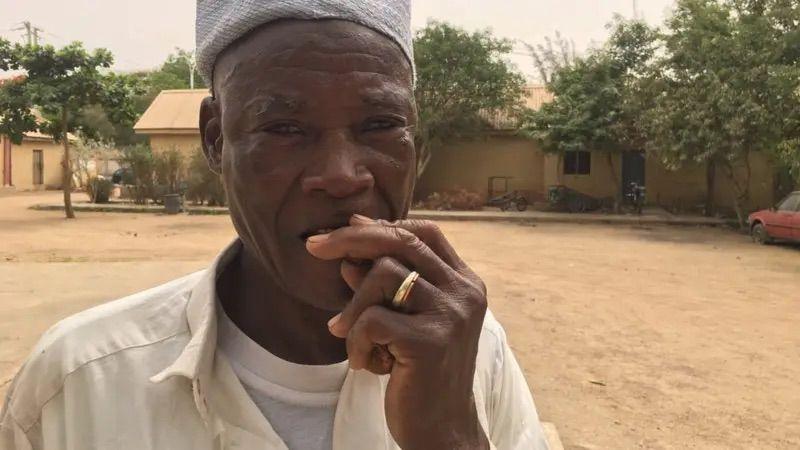As an indefinite general strike begins in Nigeria, a worker tells the BBC that it is impossible to survive on what the government proposes as a minimum wage because it is not enough to buy a bag of rice.
Security guard Mallam Magaji Garba says he needs 50kg of rice, which costs 75,000 naira ($56; £44), to feed his family every month, before taking into account other expenses.
The minimum wage is currently 30,000 naira, which the government wants to double.
The Nigerian trade unions, under the umbrella of the Nigeria Labor Congress and the Trade Union Congress, are demanding that this amount be increased to 494,000 naira, which they say reflects the current economic reality.
Nigeria’s information minister says accepting the union’s demands would cripple the economy and lead to job losses as companies would be unable to pay their workers and would have to close.
The strike has caused disruption at the country’s busiest airport, Murtala Muhammed International in Lagos, with passengers saying they have been stranded outside the domestic terminal.
Workers in healthcare, banking, aviation and other key sectors are expected to stay away from work, a move that will cripple the West African country’s economy.
Mr Magaji, who works for the Ministry of Education in the northern city of Kano, says he and his family of 14 are struggling to survive.
“I call on the government to consider us and increase the minimum wage so that we can live and eat decently.
“It is not fair that there are top civil servants who earn millions every month, while the smallest employees earn so little and struggle to feed themselves.”
The 59-year-old said he sometimes has to walk to work because he can’t afford transportation.
Nigerians have been hit with a double whammy: the removal of a fuel subsidy and a collapse in the value of the naira since President Bola Tinubu took office a year ago.
Mr Tinubu says the measures are necessary to reform the economy so that it functions better in the long term, but in the short term, inflation has risen to almost 34%.
The government has ended the policy of pegging the value of the naira to the US dollar, which could cause it to depreciate dramatically. While 10,000 naira would have bought $22 last May, now it will only buy $6.80.
You may also be interested in
Nigerians opt for rice that would normally be thrown away
Nigerian Economy: Generosity from Strangers Stuns Struggling Mother
Mr. Ibu – the man who made Africa laugh


Go to BBCAfrica.com for more news from the African continent.
follow us on twitter @BBCAfricaon Facebook at BBC Africa or on Instagram at BBCAfrica
BBC Africa Podcasts







